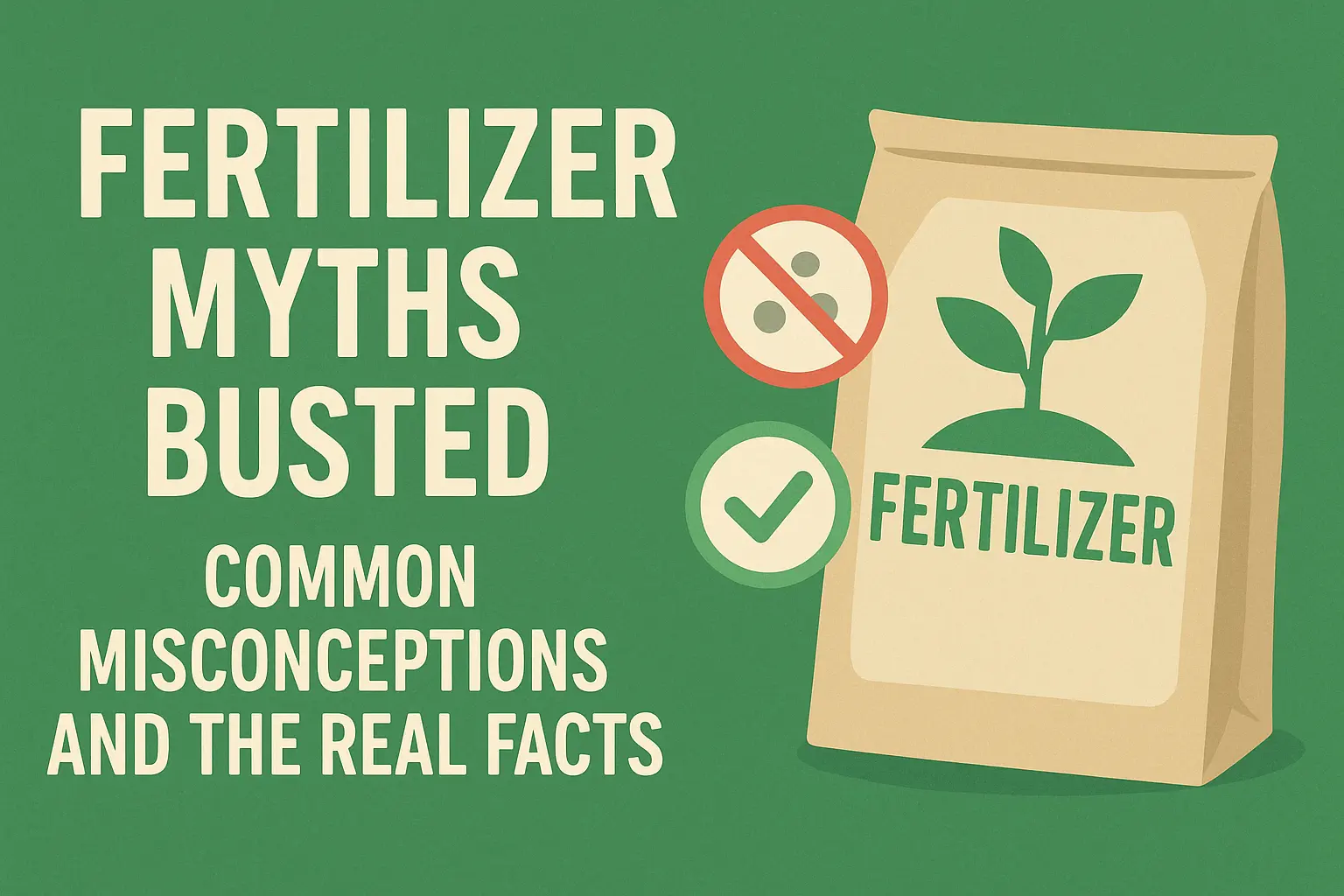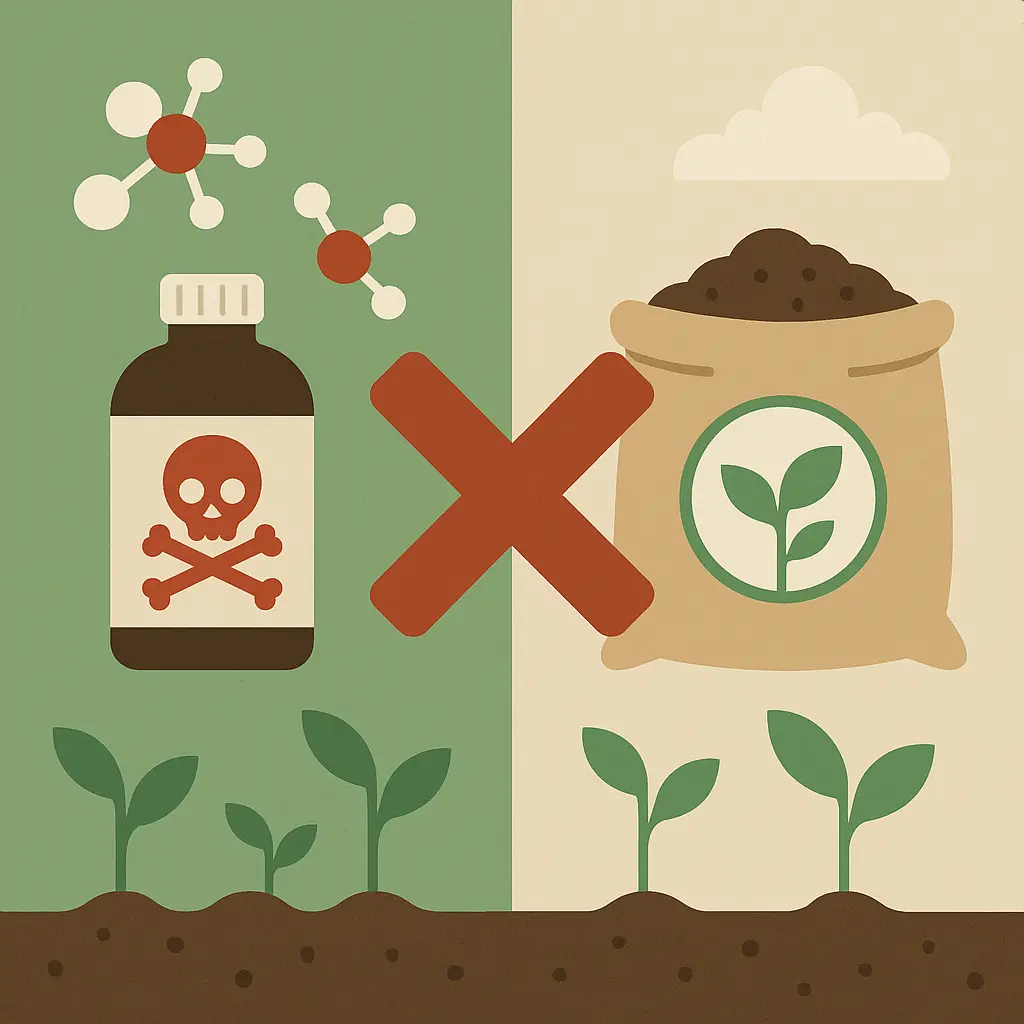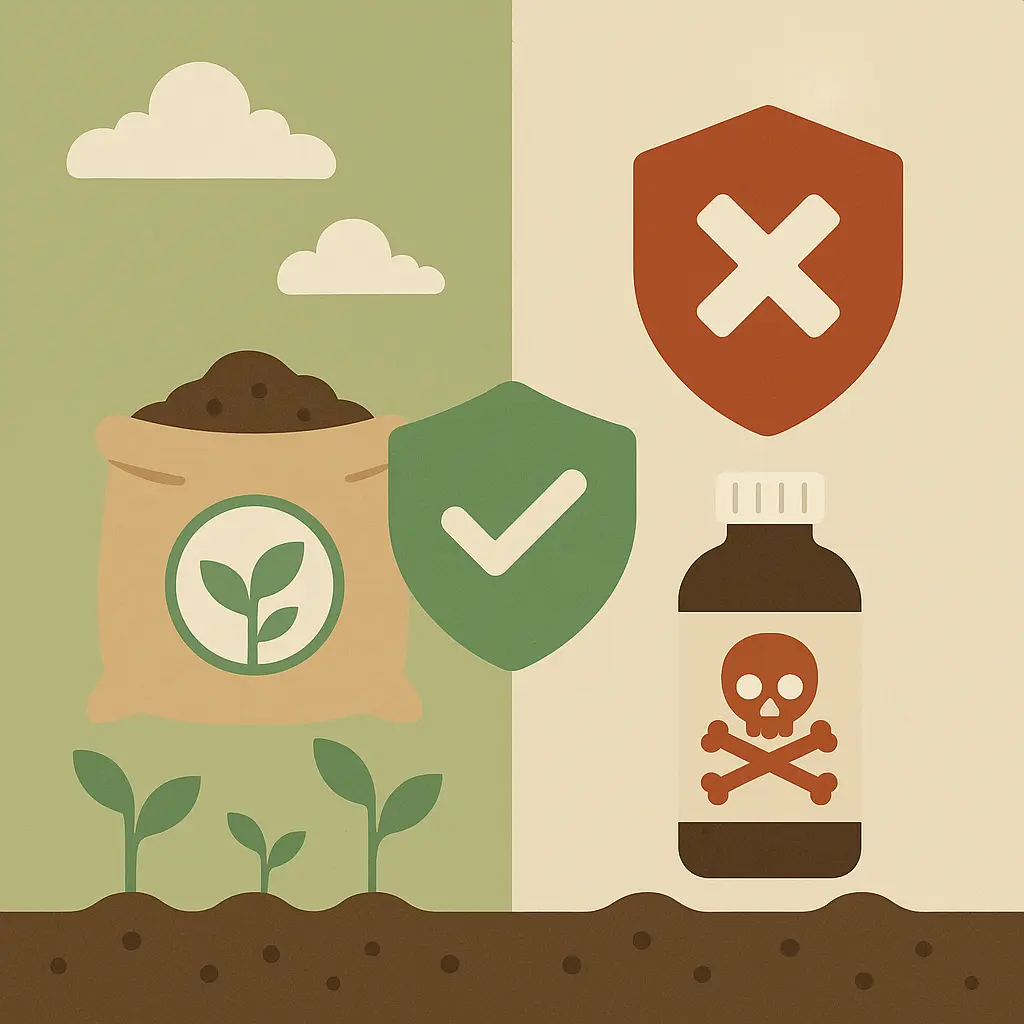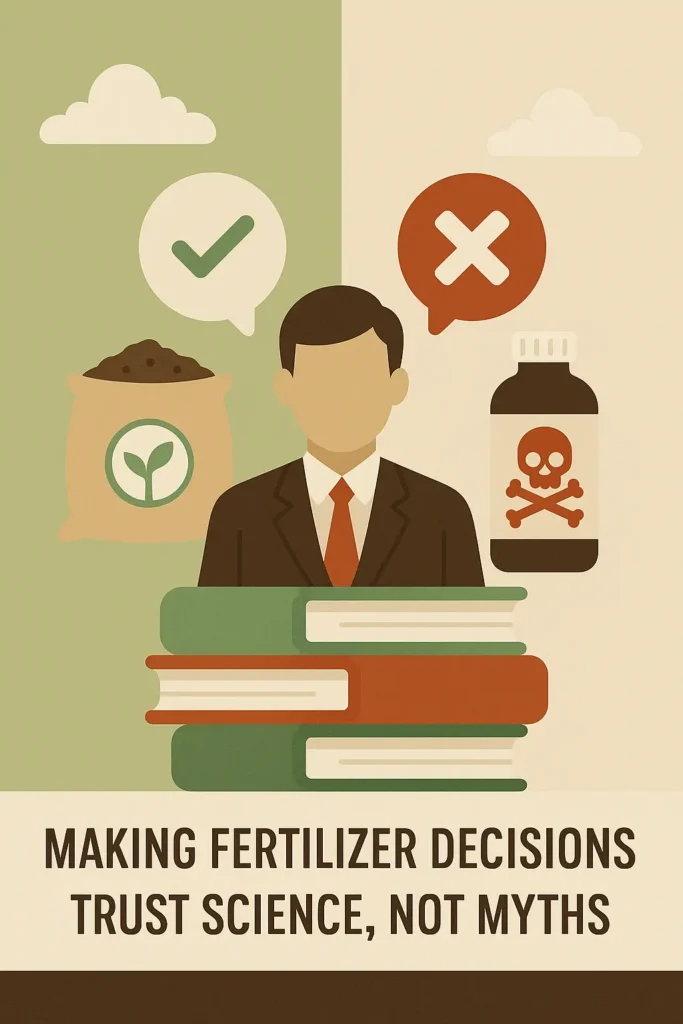Fertilizer Myths Busted: Common Misconceptions and the Real Facts

When it comes to fertilizers, myths and misinformation are everywhere—on social media, in farming communities, and even among well-meaning gardeners. These fertilizer misconceptions can influence your decisions and impact your farm’s success. Today, we’ll separate fact from fiction by busting some of the most common fertilizer myths, explaining the science behind them, and helping you make better choices for your soil, crops, and the environment.
Myth 1: “All Fertilizers Are Chemicals—and That’s Bad”

Fact:
Every fertilizer—organic or synthetic—relies on basic chemical elements like nitrogen, phosphorus, and potassium. These are essential nutrients, whether they come from compost or a bag of NPK fertilizer. The word “chemical” simply refers to substances with a specific molecular structure, not something artificial or dangerous.
Science:
- Organic fertilizers (like manure, compost, or bone meal) deliver nutrients in naturally occurring forms.
- Synthetic fertilizers provide nutrients in refined, readily available forms.
- In both cases, plants absorb nutrients as simple ions (NO₃⁻, NH₄⁺, PO₄³⁻, K⁺), regardless of the source.
Takeaway:
It’s not about “chemicals” versus “non-chemicals.” What matters is the type, quality, and correct application of nutrients for your soil and crops.
Myth 2: “Organic Fertilizers Are Always Safer Than Synthetic Fertilizers”

Fact:
Organic fertilizers are often seen as safer or more environmentally friendly, but this isn’t always true. Misuse or over-application of any fertilizer can harm plants, soil, and water quality.
Science:
- Manure and compost can introduce pathogens or excess nutrients if not properly managed.
- Runoff from over-applied organic fertilizers can cause the same water pollution issues as synthetic fertilizers.
- Synthetic fertilizers, when used according to recommendations, are safe and effective.
Takeaway:
Safe fertilizer use depends on proper application, timing, and soil needs—not just whether the fertilizer is organic or synthetic. For a deeper comparison of how these fertilizers affect soil health, crop yield, and sustainability, check out our detailed guide on Organic vs Synthetic Fertilizers.
Myth 3: “Fertilizer Use Is Always Bad for the Environment”
Fact:
Fertilizer is vital for growing enough food to feed the world. The key is responsible use, which prevents environmental harm while maintaining productivity.
Science:
- Fertilizer enables farmers to grow more food on less land, reducing pressure on forests and natural habitats.
- Problems like waterway pollution, soil degradation, and greenhouse gas emissions are caused by overuse or poor management, not by fertilizer itself.
Takeaway:
With proper soil testing, precise application, and modern best practices, fertilizer can support both productivity and sustainability.
Myth 4: “Plants Can Always Get Enough Nutrients from Soil Alone”
Fact:
Most soils naturally lack enough nutrients to support high-yield farming, especially after repeated cropping. Supplemental fertilization is often essential for commercial farming.
Science:
- Nitrogen, phosphorus, and potassium are removed from the field with every harvest.
- Over time, soil fertility declines unless nutrients are replenished—either organically or synthetically.
Takeaway:
Fertilizers, applied wisely, are essential for healthy crops and consistent yields.
Myth 5: “If a Little Fertilizer Is Good, More Must Be Better”
Fact:
Applying more fertilizer than crops can use is wasteful, expensive, and potentially harmful to plants and the environment.
Science:
- Excess nutrients can “burn” plants, harm soil microbes, and leach into water sources.
- The law of diminishing returns: Beyond a certain point, extra fertilizer doesn’t increase yield and may reduce it.
Takeaway:
Always follow soil test recommendations and apply only what your crops need.
Myth 6: “All Fertilizers Work the Same Way”
Fact:
Different fertilizers have different effects, release times, and nutrient profiles.
Science:
- Slow-release organic fertilizers improve soil health and feed plants gradually.
- Quick-release synthetic fertilizers provide an immediate boost, useful for correcting deficiencies or supporting rapid growth.
- Micronutrient fertilizers address specific plant needs like zinc, iron, or magnesium.
Takeaway:
Choose fertilizer based on your crop’s stage, soil condition, and specific nutritional requirements.
Myth 7: “Organic Farming Doesn’t Use Any Fertilizer”
Fact:
Organic farming often relies heavily on natural fertilizers such as compost, manure, and green manure crops. The goal is to maintain soil fertility without synthetic chemicals.
Science:
- Organic systems use rotations, cover crops, and organic amendments to keep soil fertile.
- Certification rules limit or prohibit synthetic inputs but do not ban fertilizers altogether.
Takeaway:
Fertilizer use is essential in both organic and conventional systems—what differs is the source and method.
Myth 8: “You Can Tell a Good Fertilizer by Its Smell or Color”
Fact:
Fertilizer effectiveness has nothing to do with its appearance or odor.
Science:
- Nutrient content is measured in percentages (N, P, K) on the label, not by color or smell.
- Some organic fertilizers smell strong due to decomposing material, but this does not mean they are better or more effective.
Takeaway:
Always read the nutrient analysis and choose fertilizer based on your soil’s needs, not marketing claims or sensory cues.
Making Fertilizer Decisions: Trust Science, Not Myths

Fertilizer myths can cost you time, money, and productivity—or even harm the environment. Here’s how to make informed choices:
- Test your soil regularly to know what nutrients are needed.
- Match fertilizer type and amount to crop requirements.
- Apply at the right time for maximum efficiency and minimum waste.
- Follow local guidelines and recommendations for sustainable, profitable farming.
Nurofarm offers both organic and synthetic fertilizers, and our experts can help you choose the right products for your needs. Science-backed recommendations ensure that your crops thrive—safely and sustainably.
Need help with fertilizer choices or soil health?
Explore our Fertilizer Guide or Contact Nurofarm Experts for personalized advice.

